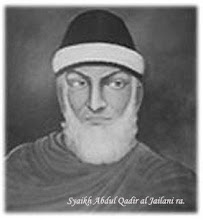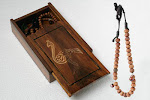Story 1
One of the great devotees having been asked about his opinion concerning a hermit whom others had censured in their conversation, he replied: ‘I do not see any external blemishes on him and do not know of internal ones.’
Whomsoever thou seest in a religious habit Consider him to be a religious and good man And, if thou knowest not his internal condition, What business has the muhtasib inside the house?
Story 2
I saw a dervish who placed his head upon the threshold of the Ka’bah, groaned, and said: ‘O forgiving, 0 merciful one, thou knowest what an unrighteous, ignorant man can offer to thee.’
I have craved pardon for the deficiency of my service Because I can implore no reward for my obedience. Sinners repent of their transgressions. Arifs ask forgiveness for their imperfect worship.
Devotees desire a reward for their obedience and merchants the price of their wares but I, who am a worshipper, have brought hope and not obedience. I have come to beg and not to trade. Deal with me as thou deemest fit.
Whether thou killest me or forgivest my crime, my face and head are on thy threshold.
A slave has nothing to command; whatever thou commandest I obey.
I saw a mendicant at the door of the Ka’bah Who said this and wept abundantly:
‘I ask not for the acceptance of my service But for drawing the pen of pardon over my sins.’
Story 3
I saw A’bdul Qadir Gillani in the sanctuary of the Ka’bah with his face on the pebbles and saying: ‘O lord, pardon my sins and, if I deserve punishment, cause me to arise blind on the day of resurrection that I may not be ashamed in the sight of the righteous.’
With my face on the earth of helplessness
I say Every morning as soon as I become conscious:
O thou whom I shall never forget Wilt thou at all remember thy slave?
I saw A’bdul Qadir Gillani in the sanctuary of the Ka’bah with his face on the pebbles and saying: ‘O lord, pardon my sins and, if I deserve punishment, cause me to arise blind on the day of resurrection that I may not be ashamed in the sight of the righteous.’
With my face on the earth of helplessness
I say Every morning as soon as I become conscious:
O thou whom I shall never forget Wilt thou at all remember thy slave?
Story 4
A thief paid a visit to the house of a pious man but, although he sought a great deal, found nothing and was much grieved. The pious man, who knew this, threw the blanket upon which he had been sleeping into the way of the thief that he might not go away disappointed.
A thief paid a visit to the house of a pious man but, although he sought a great deal, found nothing and was much grieved. The pious man, who knew this, threw the blanket upon which he had been sleeping into the way of the thief that he might not go away disappointed.
I heard that men of the way of God Have not distressed the hearts of enemies.
How canst thou attain that dignity Who quarrelest and wagest war against friends?
The friendship of pure men, whether in thy presence or absence, is not such as Will find fault behind thy back and is ready to die for thee before thy face.
In thy presence gentle like a lamb, In thy absence like a man-devouring wolf.
Who brings the faults of another to thee and enumerates them Will undoubtedly carry thy faults to others.
How canst thou attain that dignity Who quarrelest and wagest war against friends?
The friendship of pure men, whether in thy presence or absence, is not such as Will find fault behind thy back and is ready to die for thee before thy face.
In thy presence gentle like a lamb, In thy absence like a man-devouring wolf.
Who brings the faults of another to thee and enumerates them Will undoubtedly carry thy faults to others.
(From "Gullistan" - The Book Of Shaykh Sa'di as Shirazi)










No comments:
Post a Comment